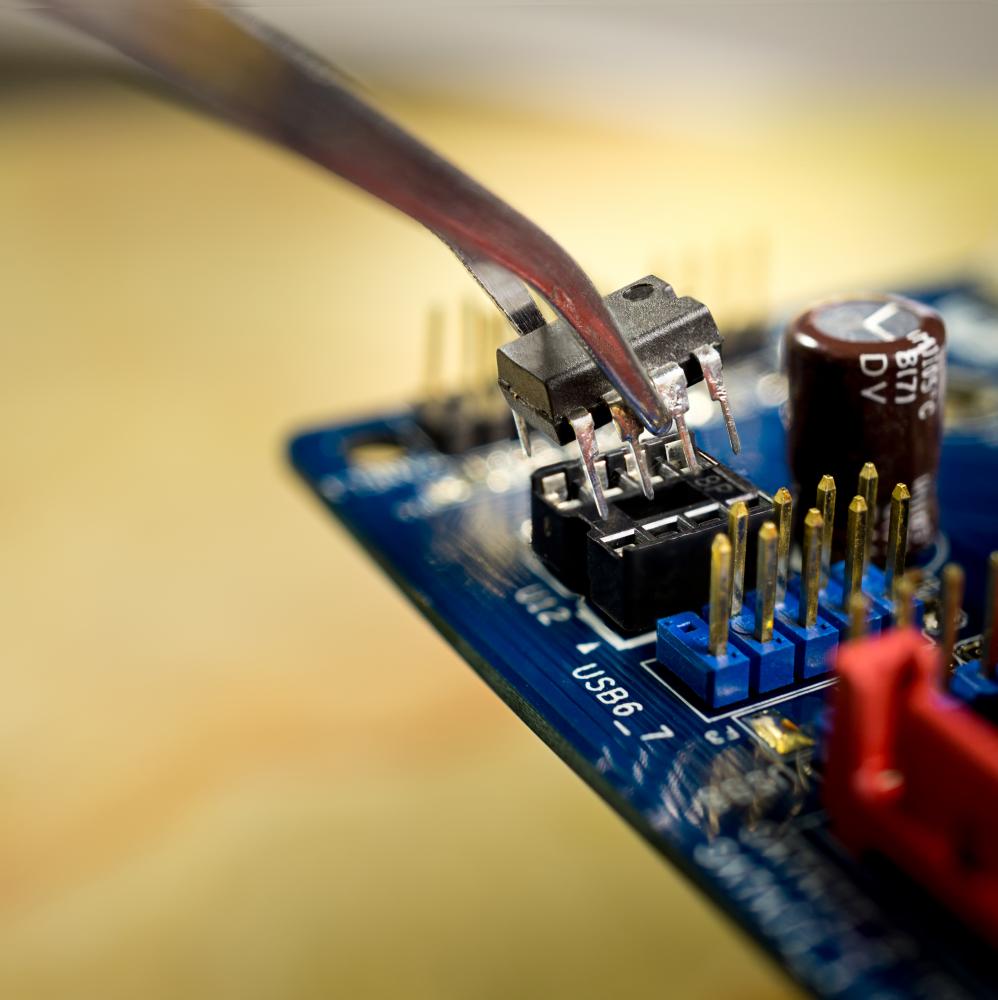Computer

Understanding Computers
When we at Welcome Home Real Estate consider the evolution of technology, the computer stands out as a remarkable invention that has shaped every aspect of our modern life. Whether it's facilitating our work, connecting us with others, or managing our homes through smart devices, computers have become indispensable. But what exactly encompasses the term computer, and how do they vary in form and function?
Types of Computers
Understanding the variety of computers available is essential for anyone, from professionals looking to optimize their workspaces to families aiming to enhance their home technology. Let's delve into the major categories.
SupercomputersOn the pinnacle of computing power, we find supercomputers. These machines are capable of processing vast amounts of data at an unprecedented speed. My personal experience touring a facility housing a supercomputer left me in awe of its capability to perform trillions of calculations per second. Supercomputers play pivotal roles in fields such as climatology, quantum physics, and genetic research, offering insights far beyond the reach of standard desktops.
Mainframe ComputersMainframe computers, often associated with enterprise environments, handle massive data processing tasks for large organizations. These systems manage the critical operations of banks, governments, and corporations, ensuring the smooth processing of transactions and the secure storage of data. Despite their industrial scale, mainframes operate behind the scenes, supporting the infrastructure of our digital world without a hint of their existence to the average consumer.
Personal ComputersThe most familiar to the general public, personal computers (PCs), are designed for individual use. A PC can be a desktop, stationed at a single location, or a laptop for on-the-go functionality. PCs have transformed how we work, communicate, and entertain ourselves, proving to be versatile tools that cater to a wide range of needs. From gaming to graphic design, PCs have sparked a revolution in how we interact with digital content.
Impact on Society
The introduction of computers has revolutionized every sector of society. In education, computers provide a platform for e-learning and access to a wealth of knowledge. In healthcare, they enable advancements in diagnostic tools and treatment planning. Our professional experiences in real estate have been transformed by computers, from virtual property tours to data analysis for market trends, showcasing their versatility and impact.
Future Prospects
Considering the rapid pace at which computer technology evolves, we stand on the brink of new discoveries that will further transform our lives. Artificial intelligence, machine learning, and quantum computing are areas poised for breakthroughs, promising to unlock new potentials in processing power and problem-solving capabilities.
Choosing the Right Computer
Selecting the appropriate computer depends on understanding one's needs and the tasks at hand. For professional work that demands robust performance, such as video editing or software development, a high-end PC or even a workstation might be necessary. For everyday tasks and internet browsing, a mid-range desktop or laptop will suffice. It's about matching the machine's capabilities with the user's requirements.
The Integration with Real Estate
In our field of real estate, computers have become an indispensable tool not just for management and operational tasks but also in connecting properties with potential clients. Innovations like 3D virtual tours allow buyers to explore properties from anywhere in the world, highlighting how computers have transcended their traditional roles to become essential in marketing and sales strategies.
At Welcome Home Real Estate, we leverage computers to enhance our service offerings, from showcasing properties through digital platforms to analyzing market data for providing accurate advice to our clients. Our commitment to integrating cutting-edge technology reflects our dedication to exceptional service.
Personal Touch
While the functionalities and applications of computers are vast, it's their ability to personalize experiences that stand out. In real estate, this translates to creating more engaging and tailored services for our clients. Computers enable us to maintain personal connections with our clientele through efficient communication and bespoke offerings, illustrating the blend of technology and personal touch in modern business practices.
Conclusion
As we navigate through the digital age, the importance of computers in enhancing our professional and personal lives cannot be overstated. From supercomputers crunching data to personal laptops making our work more efficient, these devices have become pillars of modern society. At Welcome Home Real Estate, we embrace the power of computers to transform the real estate landscape, ensuring that we stay at the forefront of innovation and service excellence.

What are the 4 types of computers?
There are primarily four categories of computers, each serving unique purposes and designed with different capabilities. Supercomputers, which are at the pinnacle of computing power, are utilized for complex tasks such as climate research and quantum physics due to their ability to process vast amounts of data swiftly. Mainframe computers, on the other hand, are typically employed by large organizations for bulk data processing and transaction management. Personal Computers (PCs), including desktops and laptops, are the most familiar to the general public, catering to individual needs from work to entertainment. Lastly, embedded computers, which we haven't discussed previously but are equally critical, are specialized computers found in devices like digital watches, traffic lights, and smart appliances, designed to perform specific control functions within larger systems.
What is a computer?
In essence, a computer is an electronic device capable of performing complex calculations, processing data, and executing programs to accomplish a wide array of tasks. From the supercomputers that crunch big data to the smartphones in our pockets, computers transform input through a sequence of operations into meaningful output, be it in the form of visuals, sounds, or some form of data processing results. They've become such a fundamental part of our daily lives, automating tasks and connecting us with the world in ways we could scarcely imagine just a few decades ago.
How much does a computer cost?
The cost of a computer can vary widely based on its type, specifications, and intended use. For a basic laptop or desktop suitable for everyday tasks like browsing the internet and word processing, prices might start as low as a few hundred dollars. However, for more performance-intensive tasks such as video editing, gaming, or professional grade software development, you may need to invest in a higher-end PC or laptop, where prices can range from $1,000 to over $2,000. Supercomputers and mainframe computers, used by organizations for large-scale data processing, represent a significantly larger investment, often costing millions of dollars. It's all about balancing your needs with what you're prepared to invest. Remember, the most expensive option isn't always the best for every situation.
What are the 5 basics of a computer?
Understanding the fundamental components of a computer is key to appreciating how they work. First, we have the Central Processing Unit (CPU), often referred to as the brain of the computer, responsible for executing commands from software applications. Next is the motherboard, the main circuit board that connects the CPU, memory, storage, and other hardware components. Memory, or Random Access Memory (RAM), is the third basic, providing the space for the CPU to store and access data and instructions quickly. Storage, either in the form of a Hard Disk Drive (HDD) or Solid State Drive (SSD), constitutes the fourth fundamental, offering long-term data storage. Lastly, the power supply unit (PSU) is critical as it converts electrical energy from an outlet into usable power for the computer's internal components. Beyond these, peripherals like monitors, keyboards, and mice allow for user interaction, completing the computing experience.
How do you choose the right computer for real estate tasks?
Choosing the right computer for real estate involves considering the specific tasks you intend to perform. For activities such as client communication, creating listings, and browsing property databases, a mid-range laptop or desktop with a reliable internet connection might be sufficient. However, for more demanding tasks like virtual tour creation, high-resolution image editing, or running complex analytical software for market analysis, you might need a more powerful system with a higher-end CPU, ample RAM, and perhaps a dedicated graphics card. In real estate, portability can also be a key factor, making laptops a preferable choice for agents on the go. Ultimately, matching the computer's specifications with your professional needs not only ensures efficiency but also enhances the service you provide to clients. Remember, investing in the right technology can significantly impact your productivity and success in the highly competitive real estate market.
Computer Resources
- National Science Foundation - The NSF funds research and education in science and engineering, offering insights into the latest advancements in computer technology.
- Educause - A non-profit organization dedicated to advancing higher education through the use of information technology, providing resources on computer innovations in academia.
- Computer History Museum - Learn about the evolution of computers and their impact on society through exhibits and resources at this renowned museum.


